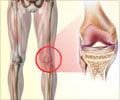The European Menopause and Andropause Society (EMAS) announced the position statement on the role of vitamin D in postmenopausal women with summary recommendations.

EMAS has risen to the challenge of increasing awareness of vitamin D deficiency to women and health professionals. The position statement describes the implications of vitamin D deficiency and provides clear recommendations on why and how adequate levels should be maintained.
Osteoporosis is a common condition in postmenopausal women leading to bone fractures. However, there is now evidence that vitamin D deficiency is also associated with other medical conditions important in older women. These include cardiovascular disease, diabetes, cancer, infections and neurodegenerative disease. The major natural source of vitamin D is cutaneous synthesis through exposure to sunlight with a small amounts also coming from the diet in animal-based foods such as fatty fish, eggs and milk. Levels of vitamin D are lower in those with poor sun exposure and in the winter. Obesity, malabsorption syndromes and certain medications (e.g. anticonvulsants, antiretrovirals) can also lower vitamin D levels. Regular sunlight exposure (without sunscreens) for 15 minutes, 3-4 times a week, in the middle of the day in summer can generate healthy levels. Supplements of vitamin D are recommended for those women who cannot obtain the required quantity through sun exposure and diet. The recommended daily allowance is 600 IU/day increasing to 800IU/day for those aged 71 years and older.
These and other recommendations presented in the EMAS position statement are published in article: "Vitamin D and postmenopausal health" by Faustino R. Pérez-López, Marc Brincat, C. Tamer Erel, Florence Tremollieres, Marco Gambacciani, Irene Lambinoudaki, Mette H. Moeng, Karin Schenck-Gustafsson, Svetlana Vujovic, Serge Rozenberg, Margaret Ree (doi:10.1016/j.maturitas.2011.11.002). The article appears in Maturitas Volume 71, Issue 1 (January 2012) published by Elsevier.
Source-Eurekalert














